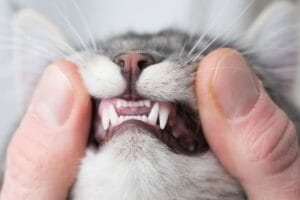8 Toxic Foods That Kill Your Cat
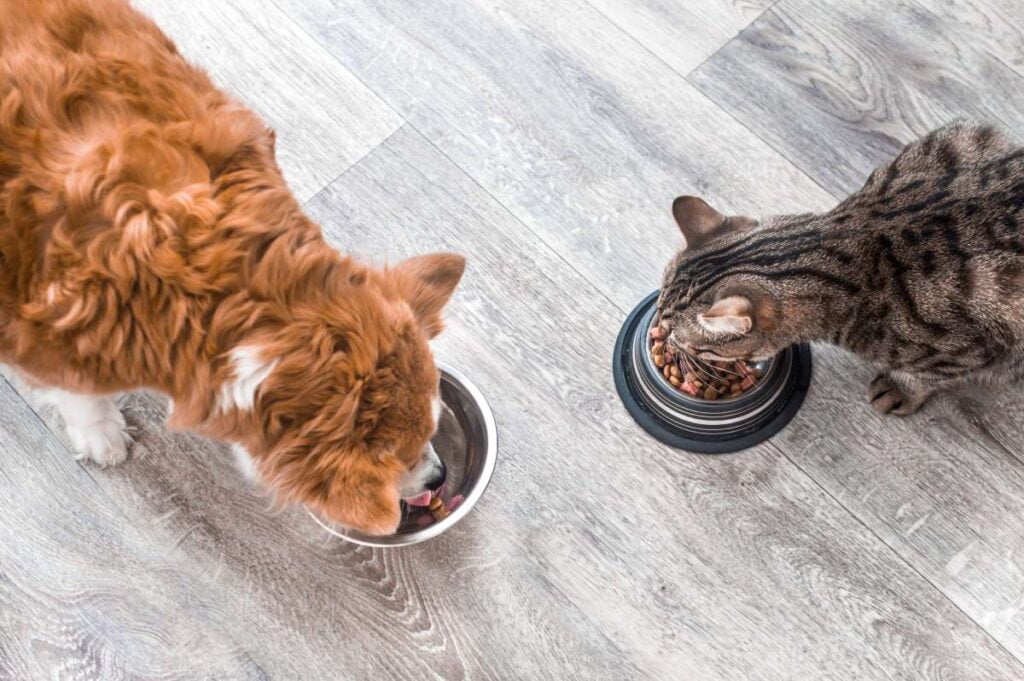
As a devoted cat owner, you strive to provide the best care and protection for your feline companion. However, did you know that lurking in your kitchen pantry are potential dangers that could put your cat’s life at risk? There are foods that kill your cat. And as a responsible pet owner it is your job to make sure you are aware of these so that you don’t put your cat’s health in danger.
In this eye-opening and essential blog post, we delve into the truth behind eight treacherous toxic foods that pose a grave threat to your furry friend’s health and well-being. By arming yourself with knowledge and remaining vigilant, you hold the power to safeguard your cat’s happiness and longevity. Join us as we unveil the hidden dangers and empower you to make informed choices that can save lives.
Toxic Foods That Kill Your Cat

As cat owners, we have a responsibility to provide a safe and nourishing diet for our beloved pet companions. While certain foods are perfectly safe and nutritious for humans, they can be toxic and potentially fatal to cats. Understanding which foods to avoid is essential to protect their health and well-being.
Cats have unique metabolisms and digestive systems that differ from ours. Some substances that we tolerate well can have severe consequences for them. It’s crucial to be aware of these toxic foods to prevent any accidental ingestion that could harm our furry friends.
By familiarizing ourselves with these toxic foods that kill your cat, you can take proactive measures to ensure your cat is not exposed to any potential harm. By doing so, you can protect their health and promote a long and happy life for their cherished companions.
A list and detailed information on the toxic foods that kill your cat is mentioned below:
Chocolate

Chocolate is a well-loved treat for many people, but for cats, it poses a significant threat to their health. Theobromine, a compound found in chocolate, is toxic to cats as they cannot efficiently metabolize it like humans can. Even a small amount of chocolate can have detrimental effects on their well-being.
When a cat ingests chocolate, it can lead to various symptoms that indicate poisoning. Vomiting and diarrhea are common initial signs, as the body tries to rid itself of the harmful substances. Rapid breathing and an increased heart rate may follow, indicating that the cat’s cardiovascular system is under stress. In severe cases, cats may experience seizures, which can be life-threatening.
It’s crucial to take proactive measures to prevent your cat from accessing chocolate. Store chocolate products securely in a place that is completely inaccessible to your feline companion, such as high shelves or locked cabinets. Keep in mind that cats are skilled climbers, so ensure that the storage location is truly out of their reach.
If you suspect that your cat has consumed chocolate, contact your veterinarian immediately. They can provide guidance on the appropriate steps to take based on the amount ingested and the severity of the symptoms. Remember, quick action is essential in cases of chocolate poisoning to ensure the best possible outcome for your cat.
Onions and Garlic
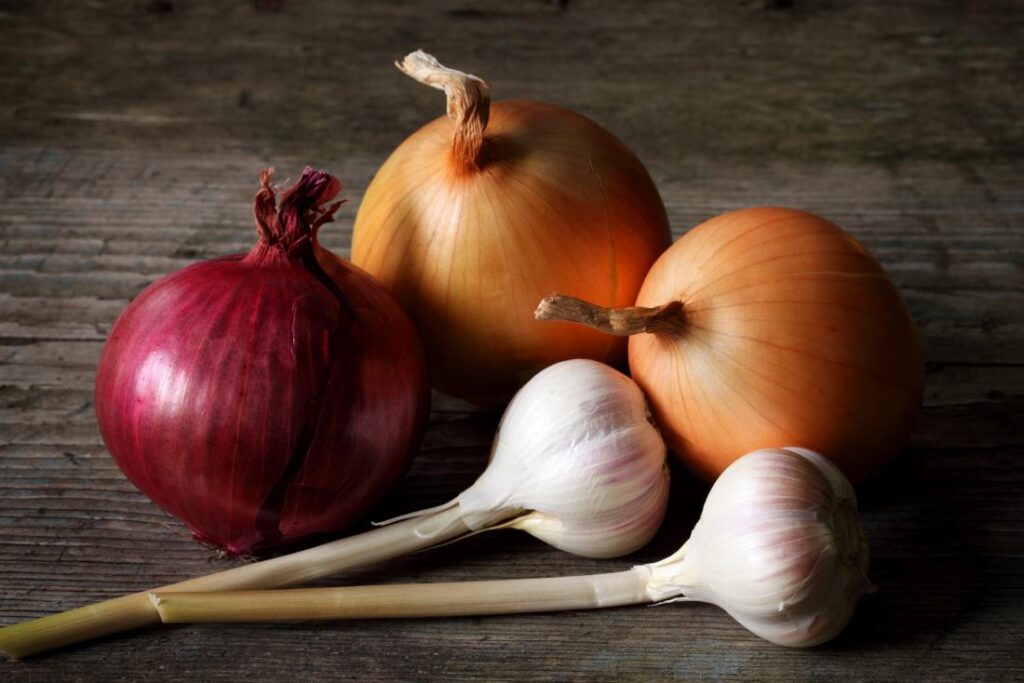
While onions and garlic add flavor and aroma to our favorite dishes, they pose a significant threat to the health of our feline companions. Both onions and garlic contain compounds that can be toxic to cats, specifically targeting their red blood cells and causing a condition known as Heinz body anemia.
When a cat ingests onions or garlic, these compounds can cause oxidative damage to the red blood cells, leading to their destruction and subsequent anemia. Anemia can manifest in various ways, including weakness, pale gums, lethargy, and a loss of appetite. If left untreated, it can have serious consequences for a cat’s overall health.
It’s crucial to be cautious and avoid feeding any foods that contain onions or garlic to your cat. This includes not only raw or cooked onions and garlic but also products that may contain powdered forms of these ingredients as seasonings or flavorings. Always check ingredient labels carefully before sharing any human food with your pet cat.
If you suspect your cat has ingested onions or garlic, it’s essential to seek veterinary attention promptly. The veterinarian will be able to assess the situation, provide appropriate treatment, and offer guidance on supporting your cat’s recovery.
Grapes and Raisins
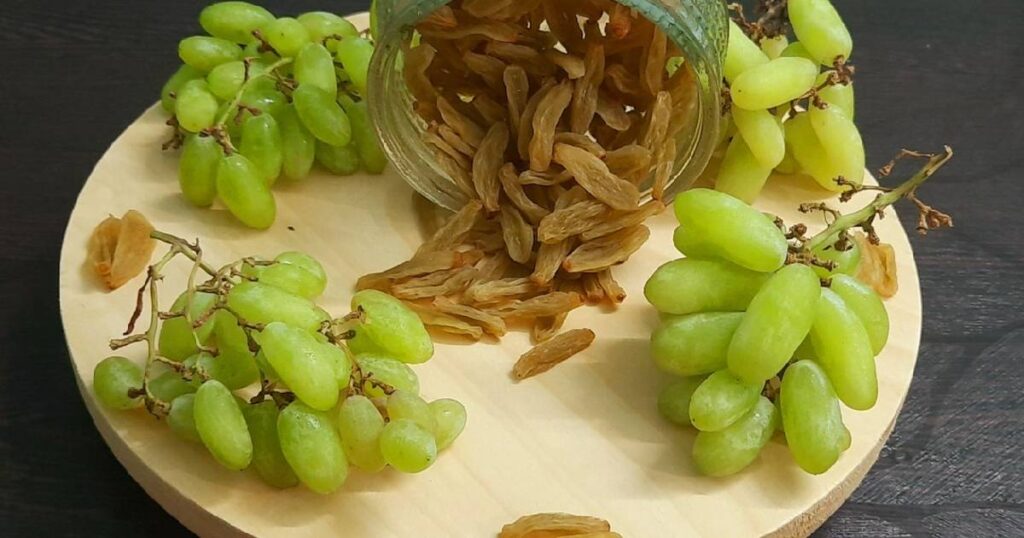
While grapes and raisins may seem like harmless snacks to us, they can have devastating consequences for our feline companions. The exact toxic component in grapes and raisins remains unknown, but even small amounts of these fruits can potentially lead to kidney failure in cats.
When cats ingest grapes or raisins, they may experience a range of alarming symptoms. Vomiting and diarrhea are common initial signs, which can quickly progress to more severe gastrointestinal distress. Abdominal pain and discomfort may become evident, causing your cat to exhibit signs of discomfort or restlessness. Decreased appetite and increased thirst are also observed, as the kidneys struggle to filter out the toxic substances present in grapes and raisins.
It’s vital to be proactive in protecting your cat by keeping grapes and raisins far out of their reach. Be cautious when handling these fruits, ensuring that none accidentally drop onto the floor or other surfaces accessible to your feline friend. If you suspect your cat has ingested grapes or raisins or is exhibiting any symptoms mentioned, seek immediate veterinary attention.
The veterinarian will evaluate your cat’s condition and take necessary measures to mitigate the potential risks. This may include inducing vomiting, administering activated charcoal to absorb any remaining toxins, providing intravenous fluids to support kidney function, and closely monitoring your cat’s overall well-being.
Xylitol
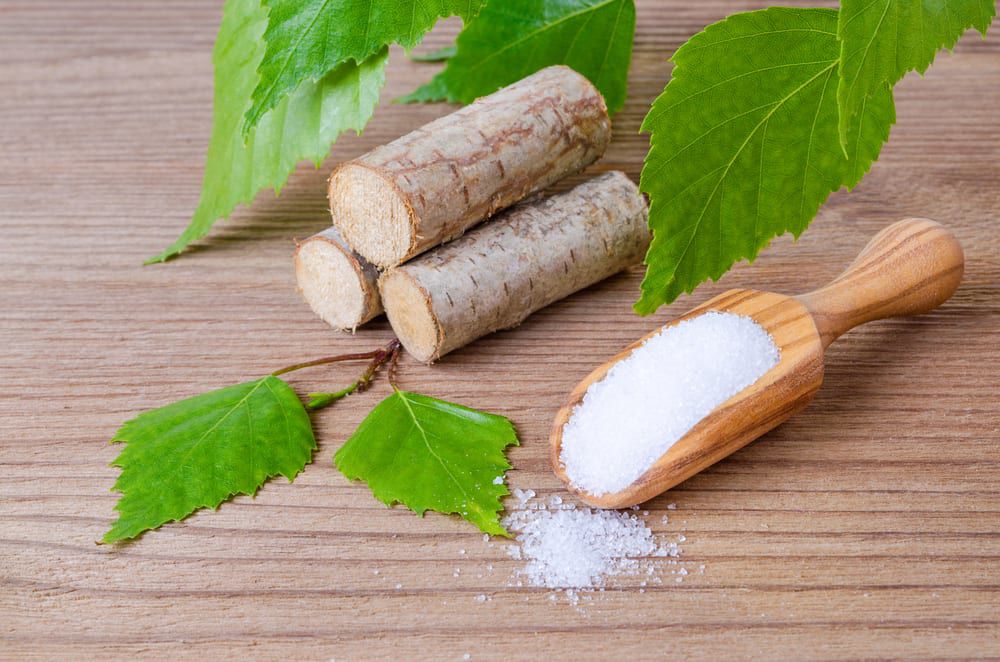
Xylitol, a sugar substitute commonly used in various products such as sugar-free gum, candy, and baked goods, poses a severe threat to the health of cats. While it is well-tolerated by humans, even a small amount of xylitol can have devastating effects on our feline friends.
When a cat ingests xylitol, it triggers a rapid release of insulin from the pancreas, causing a sudden drop in blood sugar levels. This condition, known as hypoglycemia, can be life-threatening for cats. Symptoms may include vomiting, lethargy, loss of coordination, seizures, and in severe cases, liver failure.
It’s crucial to be vigilant and ensure that all products containing xylitol are kept well out of your cat’s reach. Take special care when disposing of items like sugar-free gum or candy wrappers, as cats may be attracted to the scent and attempt to investigate or even consume them.
If you suspect that your cat has ingested xylitol or is showing any concerning symptoms, seek immediate veterinary assistance. The veterinarian will be able to assess the situation, monitor your cat’s blood sugar levels, and provide appropriate treatment to stabilize their condition.
Prevention is key when it comes to xylitol toxicity. Always read product labels carefully and avoid giving your cat access to any items containing this artificial sweetener. By remaining cautious and proactive, you can protect your cat from the dangers associated with xylitol ingestion and ensure their continued well-being.
Alcohol

Alcohol, in any form, is highly toxic to cats and can have severe repercussions on their health. Even small amounts of alcohol can result in significant intoxication and pose a grave threat to their well-being.
When a cat ingests alcohol, whether through accidental consumption or intentional exposure, it can lead to a range of distressing symptoms. The initial signs of alcohol toxicity in cats may include vomiting and disorientation. As the alcohol enters their system, it can cause breathing difficulties and result in dangerous central nervous system depression. This depression can lead to a loss of coordination, decreased heart rate, lowered body temperature, and even coma or death.
As a responsible cat owner, it is essential to keep all alcoholic beverages securely stored away from your feline companion. Avoid leaving glasses or bottles of alcohol unattended where they can be accessed by curious cats. Be cautious during gatherings or parties where alcoholic beverages are being served, as cats may be attracted to the smell or taste.
If you suspect that your cat has consumed alcohol or is exhibiting any symptoms of alcohol toxicity, seek immediate veterinary attention. The veterinarian will assess the situation, provide appropriate treatment, and closely monitor your cat’s condition to ensure their safety and well-being.
By remaining vigilant and taking proactive measures to prevent any exposure to alcohol, you can safeguard your cat from the dangers associated with its ingestion. Remember, it is always better to err on the side of caution when it comes to protecting your feline friend’s health.
Caffeine
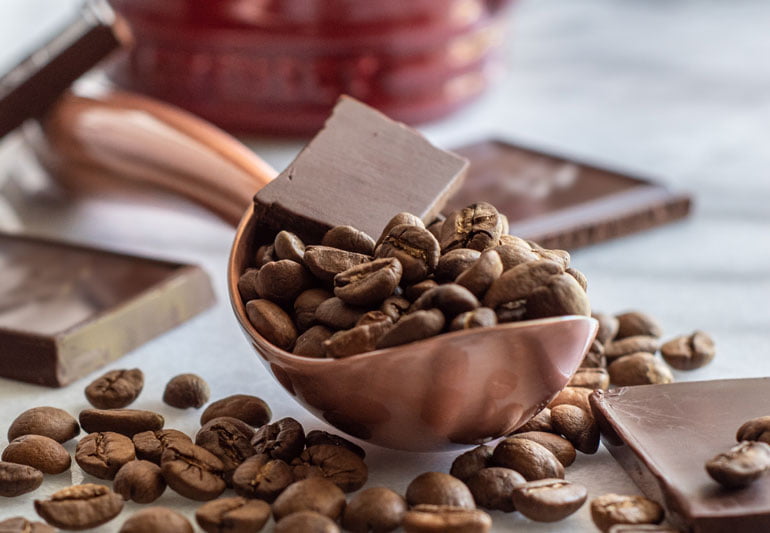
Caffeine, a stimulant found in various products such as coffee, tea, energy drinks, and certain medications, can have detrimental effects on cats. While it may be a staple in many human diets, caffeine is not suitable for feline consumption and can pose significant risks to their health.
When a cat ingests caffeine, it quickly affects their central nervous system. The stimulant properties of caffeine can lead to various distressing symptoms. Restlessness and hyperactivity are commonly observed, with cats exhibiting an inability to settle down or relax. Rapid breathing, heart palpitations, and an increased heart rate may also occur as a result of caffeine ingestion. In more severe cases, cats may experience muscle tremors and even seizures, requiring immediate veterinary attention.
To protect your cat from caffeine toxicity, it is crucial to ensure they have no access to caffeinated products. Be mindful of any beverages or food items containing caffeine and keep them securely stored away from your feline companion’s reach. Remember that cats can be curious and may attempt to investigate or consume substances that they find appealing.
If you suspect that your cat has consumed caffeine or is exhibiting any symptoms associated with its toxicity, contact your veterinarian promptly. They will provide guidance on the appropriate steps to take based on your cat’s condition and may recommend observation, treatment, or supportive care.
Raw Fish and Meat

Feeding raw fish and meat to cats may seem like a natural and instinctual choice, but it can carry significant risks to their health. Raw food, especially fish and meat, can harbor harmful bacteria like Salmonella and parasites such as Toxoplasma gondii, which can have serious consequences for feline well-being.
Consuming raw fish or meat can lead to severe gastrointestinal issues in cats. Bacterial infections can cause symptoms such as vomiting, diarrhea, abdominal pain, and loss of appetite. These symptoms can be debilitating and may require veterinary intervention to manage and treat effectively.
Additionally, parasites present in raw fish and meat, such as Toxoplasma gondii, can pose a risk to both cats and humans. In cats, this parasite can cause toxoplasmosis, which can result in symptoms like fever, lethargy, and muscle pain. Pregnant cats are particularly vulnerable, as the infection can be passed on to their unborn kittens, leading to severe complications.
To mitigate these risks, it is best to cook meat thoroughly before offering it to your cat. Cooking eliminates potential pathogens and ensures the meat is safe for consumption. Alternatively, you can choose commercially prepared cat food that undergoes rigorous processing methods to eliminate harmful bacteria and parasites, providing a balanced and nutritionally complete diet for your feline companion.
By prioritizing the safety of your cat and opting for cooked meat or commercially prepared cat food, you can minimize the risk of bacterial infections and parasitic infestations. Remember, providing a safe and healthy diet is essential for maintaining your cat’s overall well-being and promoting a long and happy life.
Conclusion
Understanding which foods are toxic to cats is essential for their safety and well-being. By avoiding toxic foods that kill your cat such as chocolate, onions, grapes, xylitol, alcohol, caffeine, and raw fish or meat, you can help protect your cat from potential harm. Always consult with your veterinarian if you suspect your cat has ingested a toxic food or if you have any concerns regarding their diet. Remember, being an informed and responsible cat owner plays a vital role in ensuring a long and healthy life for your feline companion.
